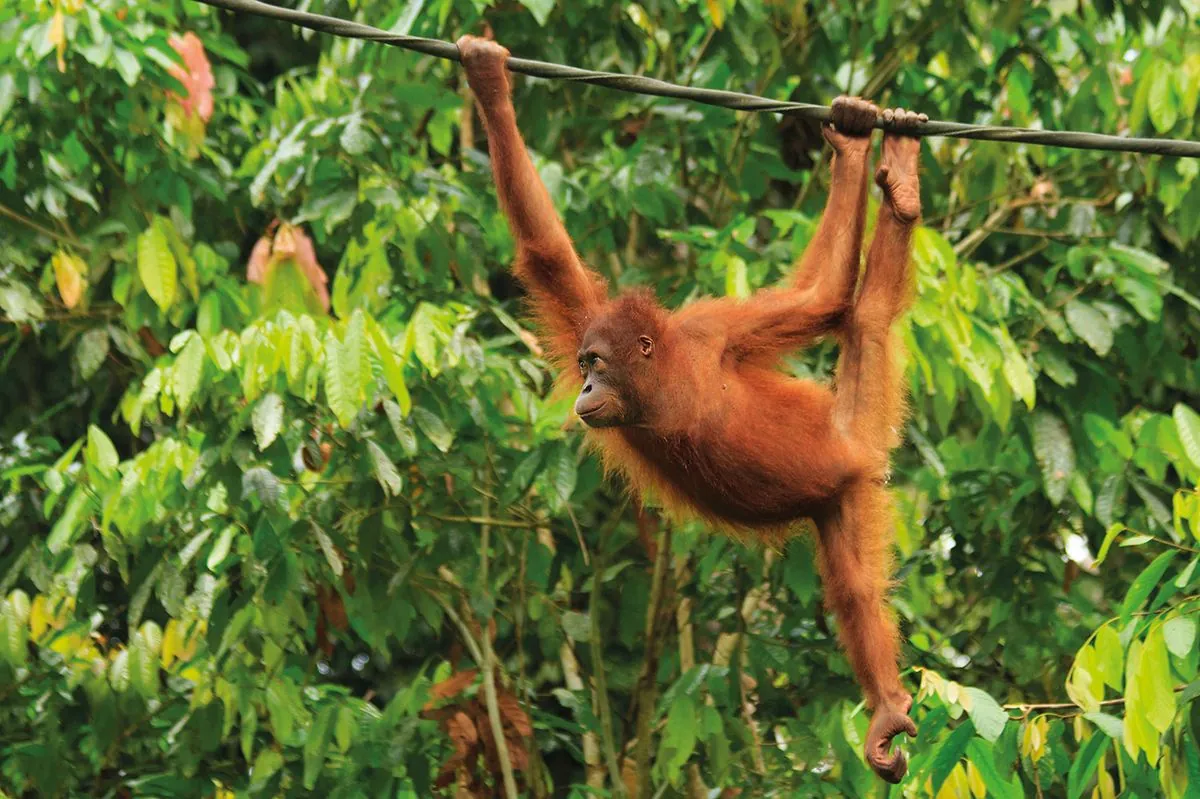In a significant move to protect one of Asia's most iconic primates, Malaysia has announced a new initiative to encourage donations for orangutan conservation. The Malaysian Palm Oil Green Conservation Foundation revealed on August 21, 2024, that contributions to the orangutan conservation program would be eligible for tax relief, extending this benefit to palm oil industry players as well.
Orangutans, the only great apes found in Asia, are facing a critical threat to their survival. With a shared DNA of 96.4% with humans, these "persons of the forest" have seen their population decline dramatically over the past six decades. Current estimates by the World Wildlife Fund (WWF) place the orangutan population in Borneo at less than 105,000 individuals, highlighting the urgent need for conservation efforts.
The conservation program, overseen by the plantation and commodities ministry, aims to utilize donations for various preservation activities. Hairulazim Mahmud, the foundation's general manager, stated, "Funds can also be used for the planting of forest trees and fruits that are a source of food for orangutans." This approach aligns with the orangutans' primarily frugivorous diet, with fruits constituting up to 90% of their food intake.
The initiative also includes plans to establish expert teams for monitoring these endangered primates. This is crucial given that orangutans have the longest childhood dependency of any animal worldwide and can live up to 45 years in the wild. Their complex social structures and use of various vocalizations for communication make them fascinating subjects for study and conservation.
Interestingly, the commodities minister announced on August 18, 2024, that companies importing palm oil from Malaysia would have the opportunity to adopt orangutans, although the primates would remain in their natural habitat. This adoption program could potentially increase awareness and funding for conservation efforts.
The involvement of the palm oil industry in this conservation initiative is particularly noteworthy. Deforestation, primarily driven by palm oil plantations, has been the most significant threat to orangutan habitats. By encouraging industry players to contribute to conservation efforts, Malaysia is taking a step towards balancing economic interests with environmental protection.
"Funds can also be used for the planting of forest trees and fruits that are a source of food for orangutans."
Orangutans play a vital role in their forest ecosystems, acting as "gardeners" by contributing to seed dispersal and maintaining biodiversity. As the largest arboreal mammals, spending most of their time in trees, their preservation is crucial for the overall health of the rainforest.
While this tax relief initiative is a positive step, the challenge of orangutan conservation remains significant. With three species of orangutans - Bornean, Sumatran, and Tapanuli - all facing threats, concerted efforts are needed to ensure the survival of these intelligent primates for future generations.
